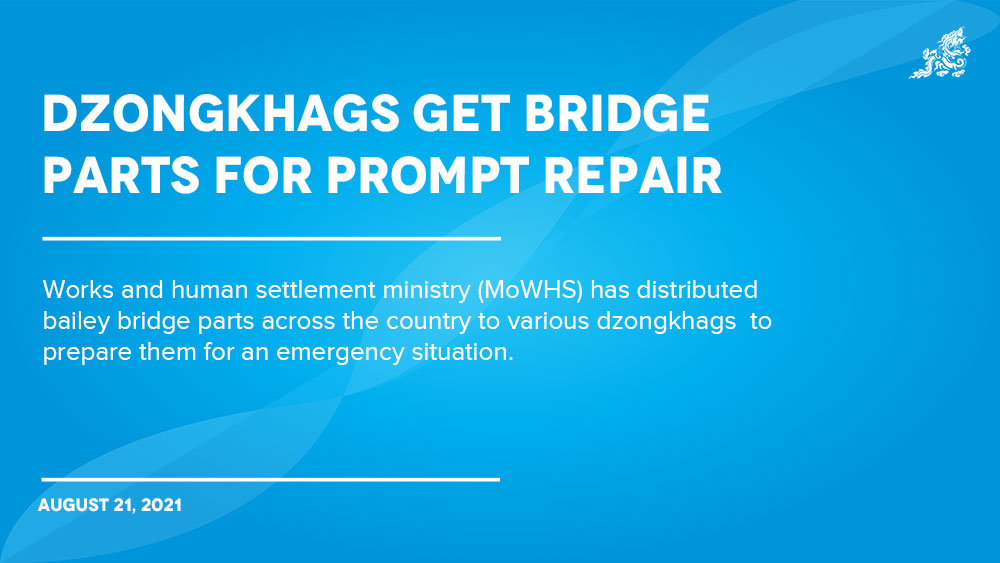Yangyel Lhaden
Works and human settlement ministry (MoWHS) has distributed bailey bridge parts across the country to various dzongkhags to prepare them for an emergency situation.
Works and Human Settlement Minister Dorji Tshering said that there are enough bridge parts for about 10 bridges.
Lyonpo said although enough bailey bridge parts were in stock they could not be used in repairing one of the two types of bailey bridge called suspended bailey bridge in Udzorong. “There are only a few suspended bailey bridges in the country and their parts are rare.”
He said that importing suspended bailey bridge parts would have taken months but the ministry could restore the Udzorong bridge in Trashigang without much delay with bridge parts taken from the Kamechu suspended bailey bridge. “Since the Kamechu bridge was closed to traffic, we took advantage.”
The Udzorong bridge, which connects Udzorong and Trashigang, and Mongar near Sherichu on the Mongar-Trashigang highway, was closed to traffic temporarily on June 20 after it suffered cracks.
The bridge was restored by the Department of Roads (DoR) and Construction Development Corporation Limited (CDCL) and opened to traffic on July 6.
Lyonpo said despite the pandemic dzongkhags, DoR, and CDCL have been able to import enough bailey bridge parts for new bailey bridges construction.
He added bailey bridges are semi-permanent; it had a short life span and low carrying capacity. “ We have started replacing semi-permanent bridges with permanent bridges along the highway which are more durable and can carry more load.”
Lyonpo said Bhutanese engineers had developed the capacity to build, maintain, and repair bridges. “Engineers in dzongkhags will fix and launch bridges during emergencies.”
In June DoR launched a 60-feet bailey bridge over the Rangtse chhu along the Samtse-Haa highway and another over Langchu on the same highway last year.
Lyonpo said that money and time were saved when the ministry’s engineers built and repaired bridges. “Other than our monthly salary, there is no budget top-up required.”
However, he added, that privatisation was important for contractors to gain expertise and compete in the international market. “That is why we are only engaged during emergencies. Other work is tendered to contractors.”
Edited by Tshering Palden


